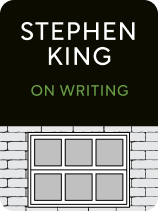

This article is an excerpt from the Shortform summary of "On Writing" by Stephen King. Shortform has the world's best summaries of books you should be reading.
Like this article? Sign up for a free trial here .
Does critiquing writing actually help you become a better writer? How should you deal with the feedback and critique you receive?
Critiquing writing is an important part of the process for any writer, and all writers have to deal with feedback, whether it’s from editors, reviewers, or readers.
Read more about how critiquing writing can help you improve, and how to handle feedback.
Critiquing Writing: Dealing with Criticism
Each person’s reaction to writing is naturally subjective, so you’ll get feedback along a wide spectrum, and you’ll get feedback you disagree with. Here’s how to work through the feedback and the process of critiquing writing.
Dealing with Feedback Resistance
Some writers struggle with incorporating feedback healthily. Changing your masterpiece simply because your readers didn’t like it feels like a corruption of art. Critiquing writing is a natural part of the process, and you can learn to deal with it in the way that’s best for your writing.
But if you feel this way, why invite readers you respect to review your draft at all? If it’s simply because you want adulation for what a genius you are, then at least be honest about what you’re looking for.
Think of reviewers as your own personal focus group to improve your writing. Movie studios do this with early cuts of their films. While it might seem arbitrary to shape an auteur’s vision to the tastes of a crowd pulled off the street, focus groups seem to work in actually making films more successful.
As we covered, King recommends putting at least six weeks between completing your first draft and starting your revision. The purpose is to get enough distance from your work that you no longer treat it as sacrosanct. Be willing to kill your darlings. This is an important part of critiquing writing.
How to Weigh Feedback
You’ll get feedback all along the spectrum, and you should weigh the feedback to see where it’s pointing. This is part of dealing with criticism when critiquing writing.
If your reviewers are unanimous about one direction (whether something is great or terrible), they’re probably right.
Say there’s a tie—one person thinks Johnny is believable but Mary is ludicrous, and another thinks the opposite. Then the author wins. You shouldn’t feel compelled to change anything.
You shouldn’t weigh feedback from each person equally. It depends on how much you respect their opinion, and what area they’re particularly insightful about. Some people specialize in dialogue, others in character development, yet others in pacing, factual accuracy, and so on. Dealing with criticism means thinking about all the writing criticism, and then making decisions for yourself.
The Ideal Reader
There is usually one person whose opinion you trust above all: the Ideal Reader. For King, it’s his wife Tabitha.
The Ideal Reader is the person you have in mind as you write. You come to know your Ideal Reader’s tastes so well you can predict how he or she will feel about any particular thing you’re writing. Will she laugh at this scene? Will she get bored here if I explain too much? The Ideal Reader helps give you an audience as you write and is perhaps the only exception to writing with the door closed.
The Ideal Reader should also be a honest reviewer—eternally supportive but unrelenting. You might disagree with Ideal Reader’s feedback, but you know there’s truth to it.
Especially if you start getting attention for your work, the Ideal Reader should remain unimpressed and be the objective eye bringing you back down to earth. Hitchcock’s wife
King sneaks glances at Tabitha as she reads, hoping the scenes he’s designed to score that great big laugh succeed. She’s chided him for being needy this way. He admits that writers really are needy, but he loves when she loves his work.
Writing criticism can be hard to take. But it’s important that you take feedback ins stride, and use it to make decisions that can improve your work to get it to match your own vision.

———End of Preview———
Like what you just read? Read the rest of the world's best summary of Stephen King's "On Writing" at Shortform .
Here's what you'll find in our full On Writing summary :
- Stephen King's personal writing habits that led to superstar books like Misery and It
- How to make a story and characters feel real
- Why you should never use adverbs






